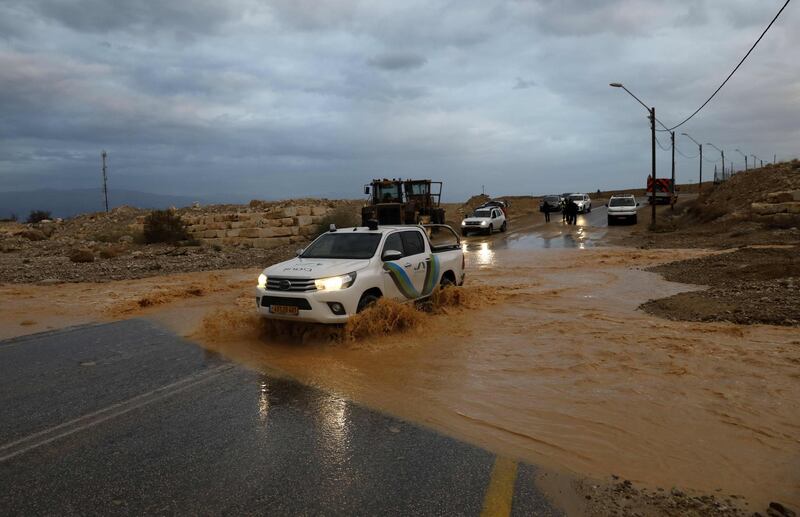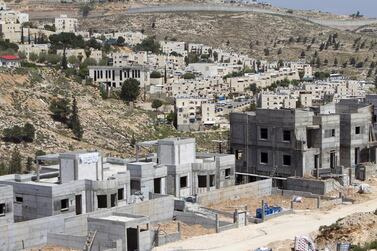One Israeli was killed and one Jordanian was missing as the Eastern Mediterranean was pounded by heavy rains as the largest storm of the winter entered its second day on Thursday.
The death brought the total number of people killed in Israel during the storms to five.
Heavy rains continued to fall across the region, marking 24 hours of non-stop rain for much of Israel, Jordan and Palestine as part of a second cold front this week.
Several roads in northern Israel remained closed on Thursday and several towns were hit with flooding hours after an Israeli was killed late on Wednesday evening, according to Israeli news reports.
The 38-year-old man drowned while assisting a family trapped in a vehicle swept away by floods in the northern city of Nahariya, according to the Israeli newspaper Haaretz.
Police reports said the man successfully pulled three people out of the car before being swept away. His body was found two hours later.
The death raised the number killed in Israel this week's heavy rains and flash floods to five persons, Haaretz reported.
Jordanian rescue divers and the Civil Defence Department on Thursday continued their search of the Zarqa River for a Jordanian man who went missing from the area late on Wednesday night amid heavy rains and flash flooding.
The man, a resident of the northern governorate of Jerash, was believed to have been near the river when the flooding hit.
Thunderstorms, rain and occasional hail hit Ramallah and other parts of the West Bank on Thursday. The Palestinian Meteorology Department said the storms are likely to continue until Friday evening.
Temperatures for much of the West Bank, Jordan and Israel hovered around 5°C, dropping down to 3°C overnight.
Businesses in Amman faced flooding and overloaded wastewater systems on Wednesday evening and Thursday morning, affecting two-dozen commercial shops and warehouses in downtown Amman and the Seventh Circle area, according to the Amman Chamber of Trade.
It is believed the damage is less than previous winter, when multiple floods caused damage worth several million dollars to businesses in Amman, which lies in a valley.
The Greater Amman Municipality said all streets in the city were passable as of mid-day on Thursday, but cautioned citizens that many over filled drainage systems “will need time” to absorb the rainwater, leaving large standing pools in several locations across the Jordanian capital.
The heavy rainfall could bode well for Jordan and Israel’s water situation this year; both rely on different rainwater cache systems and the former is among the three water-poorest countries on Earth.
However, with the high intensity of rainfall over a short period of time, geological and environmental experts say a large portion of the water will not be absorbed into underground aquifers, wells and dams but rather flow through valleys to the Dead Sea.
The sudden heavy rainfall caused the Wadi Shuaib dam in central Jordan to flood on Thursday after it exceeded its 700,000 cubic-metre capacity.
The cold front and heavy rains are expected to continue into Friday morning before lifting in the early evening.






